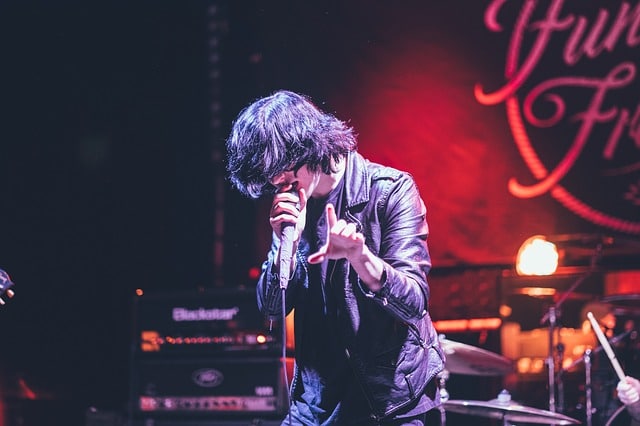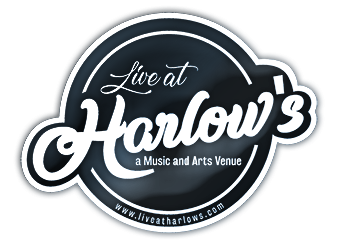Thanks to Mary at band-vans.net for this excellent article.
Many bands think that if they master their instruments, write good songs and maybe even have some fans that the rest will somehow fall into place. They forget to ask themselves how other potential fans shall come across their band.
The big advantage of the internet is that you can present your songs and videos online. Similarly, the big downside of the internet is that all bands present their songs and videos online. More bands than ever before vie for the favor of music lovers. So, just as it is important to have a good band, it is equally important to make sure that the band is heard.
Who are you? – Your band as a brand
Make your band a brand. You have to define yourself first. If you describe your style, promoters and potential fans must be able to picture it immediately. This is the exact opposite of, “we can’t be put in a drawer”, “we make a mix of many different music styles”, or “we actually go down well everywhere”.
Do not try to please everyone; your product has to please you first and foremost. Find your unique selling point. What else can you offer that others do not offer? Why are you unique? Why should people choose your band from the many different offers?
Write a short and entertaining band info that tells people what they can expect from a show. For starters, you can skip a band biography (in my opinion) as that will only become interesting once you have a certain degree of popularity.
You can vary, but you will be successful if, by and large, you remain true to your style. This includes not only your music, but usually also a certain lifestyle. Everyone loves authentic bands that are true to themselves. Stand by your product, then you can sell it best.
How do you present yourself to the world?
Social Media
Only create profiles on the social media platforms that you can really look after. It’s rather counterproductive if you’re there but never publish anything. Which platform is best for you depends, among other things, on your region, age, political views, and the average lifestyle of your followers.
Website
I also strongly recommend a website as it has many advantages over a social media profile. First of all, it makes your band look more professional. A website is timeless while social media lives from news and is constantly changing content. A website can also be much more creative than a standardized page on a platform.
You have full control over your website while in the social media you are exposed to constant changes from the platform operators. You are also dependent on the rise or fall of the platform. Apart from that you can offer song or album downloads on your website.
Concerts
Play live as often as you can and present yourself to the world. In the beginning, you have to invest time and money. As musicians, you are still much more fortunate than artists of other genres who (usually) have very high expenses in order to be able to present themselves at all, e.g. in galleries, at art exhibitions, art fairs, etc.
Although there are also showcase festivals for musicians that can be worthwhile, you can usually find opportunities to perform without participation there. If you’re lucky, you’ll even get paid for the chance to present yourself.

There are idealistic local promoters who take the risk of letting an unknown group play, and you should be grateful for that. However, you cannot expect that these promoters shoulder all the advertising for your show on their own. There are bands that do not even share the Facebook event to their shows on their Facebook band page, let alone promote them for a fee.
However, the better you promote your shows, the better your chances are of being booked again in the same club. Many types of advertising cost you nothing or are very cheap. Create a local press distribution list and send press releases for your concerts to the local media in each city. Send your confirmed tour dates to fanzines and magazines; at least online, they are often published. Also, add your shows to online event calendars.
Create online flyers with tour dates and distribute the printed version at concerts. Share all Facebook events of your shows as soon as they are released and at least once more shortly before the show. Invite your Facebook friends in their respective cities to the concerts. You can also promote the Facebook events with relatively little money.
Banner
Have your logo printed on a banner that you can hang behind you on the stage. If you play as one of several bands and people like you, they will immediately know who you are and remember your name better. A banner should be at least 2.50 x 1.50 m in size so that you can see the print well from a distance.
Videos
Create videos for YouTube, Instagram, Facebook etc. It doesn’t have to be expensive. If the video is good, people will share it. To convey a good impression of your performance, a live video with good sound from a well-attended show in your hometown should do. You can arrange the show as a party, perhaps with invited guests along with free admission, a good support act and free drinks. This will always put people in a good mood.

Fan Loyalty
You should find out who your fans are. Trying to convince people of your band who are not interested is never the right way to gain fan loyalty. Tastes are different and you cannot force anyone to like your music. Instead, try to find and keep those who appreciate your music. If you have found these people, be nice to them and do everything that you can to keep them as fans.
In the beginning, your fans are the most important people for you. They are much more important than the bigger bands you want to support and also much more important than A&R managers, music journalists, booking agents, or producers who really aren’t good for anything without fans. Sure, they can help you to play in front of more people, but they only do that when it pays off. It’s much easier to get the average concertgoer excited than people who deal professionally with music on a daily basis.
So, give your promotional albums, downloads, or merchandise to the right people. These are not just artist agents or label managers, but those who love your music. If you have a lot of loyal fans, the agents and label people will eventually come by themselves or at least will be easier convinced.
Newsletter
Send out an attractive email newsletter to share important news like the release of a new album or an upcoming tour with your fans. Invite people to register at the merch table and through your website and social media pages. You can, for example, offer a discount for your new album for people who sign up, there are many possibilities.
Merchandise
Be creative and offer your fans something special. Your album cover does not necessarily look good on a shirt. I wouldn’t buy a boring T-shirt from a band just because I like them. If I buy it anyway just to support the band, I probably won’t wear it, and as a result, you (the band) miss out on an important advertising opportunity. When your shirts become your fans’ favorite shirts, you will often see people walking around with your logo.
If you know your fans, you can better match your merchandise. Is it particularly important to them, that the shirts are fair trade and organic? Do many women visit your shows? Do most of your fans wear black anyway?
You should always have a selection of products, different colors and sizes, etc. It is also important to have something to fit every budget from badges and fabric bags to shirts, albums, and collector’s editions. Then, even people who do not have much left at the end of the evening can support the band. Additionally, package deals are always a good idea.
Success in new regions/markets
If bands are already successful in their home region, they often expect that they will magically do well in other regions or countries. When marketing any other product(s) in an entirely new region, most people realize that they will have to invest a lot of work and, most likely, a lot of money in advertising.
It can, of course, help if you already have a certain degree of popularity in your homeland, especially if the scene there is comparable to that of the new target region. However, people will want to convince themselves first, so you usually have to start from scratch as long as you do not have a big international label behind you.
I recommend that you first establish yourself in a region where you are doing well and where there is a market for your music. It does not necessarily have to be your hometown, but this will make it easier to find a label or agency in new regions later.
Showcase festivals
In addition to regular audiences, people from the music business and other music scene actors are present at so-called, showcase festivals. These festivals exist in all sizes, orientations, and as mixed forms all over the world. You can apply for performing at these festivals, but you should be ready for it. You need to know where your band is going and your performance and promotional material should be professional. Once you do that, these festivals can be a good place to gain contacts, especially if you want to extend to new regions.

